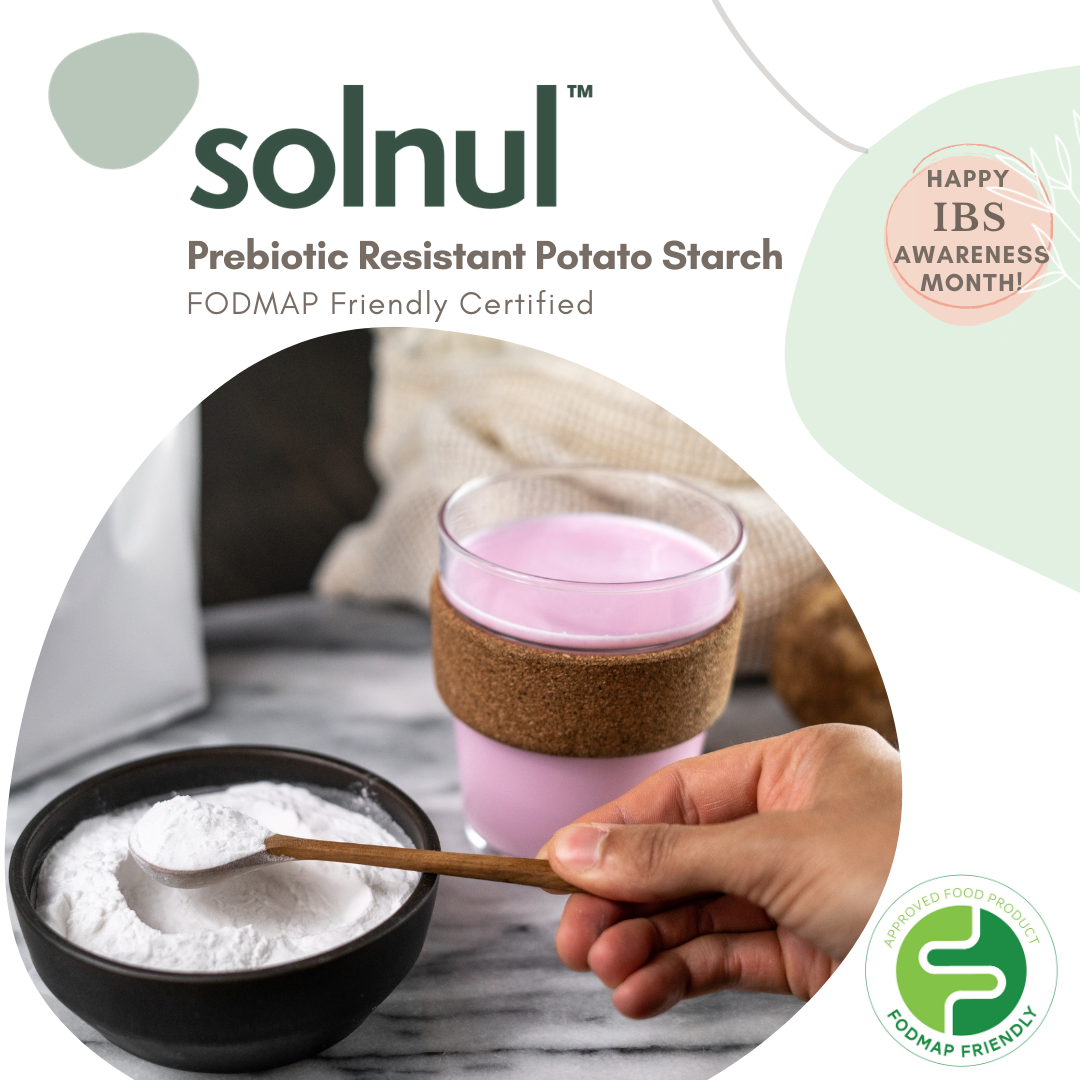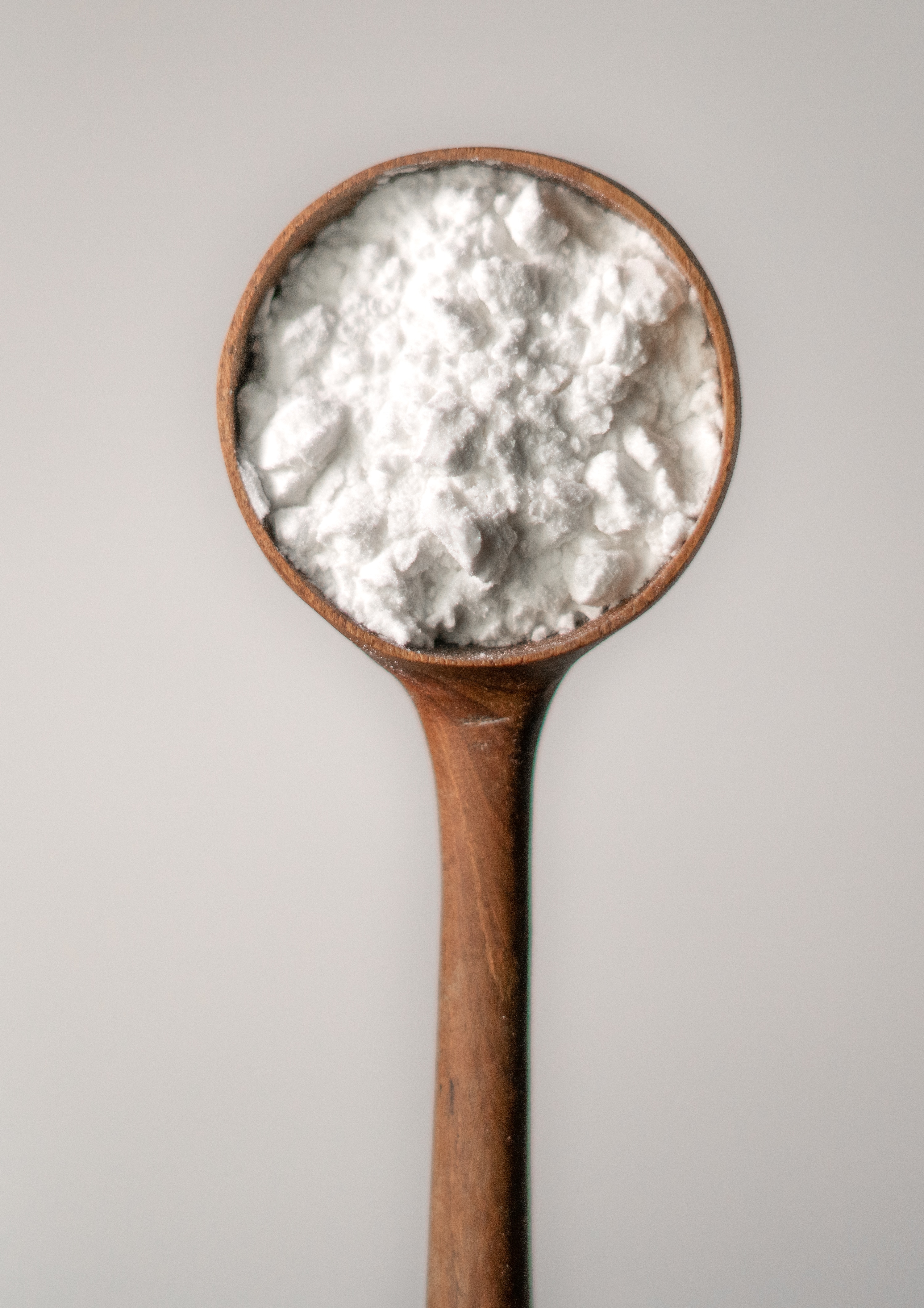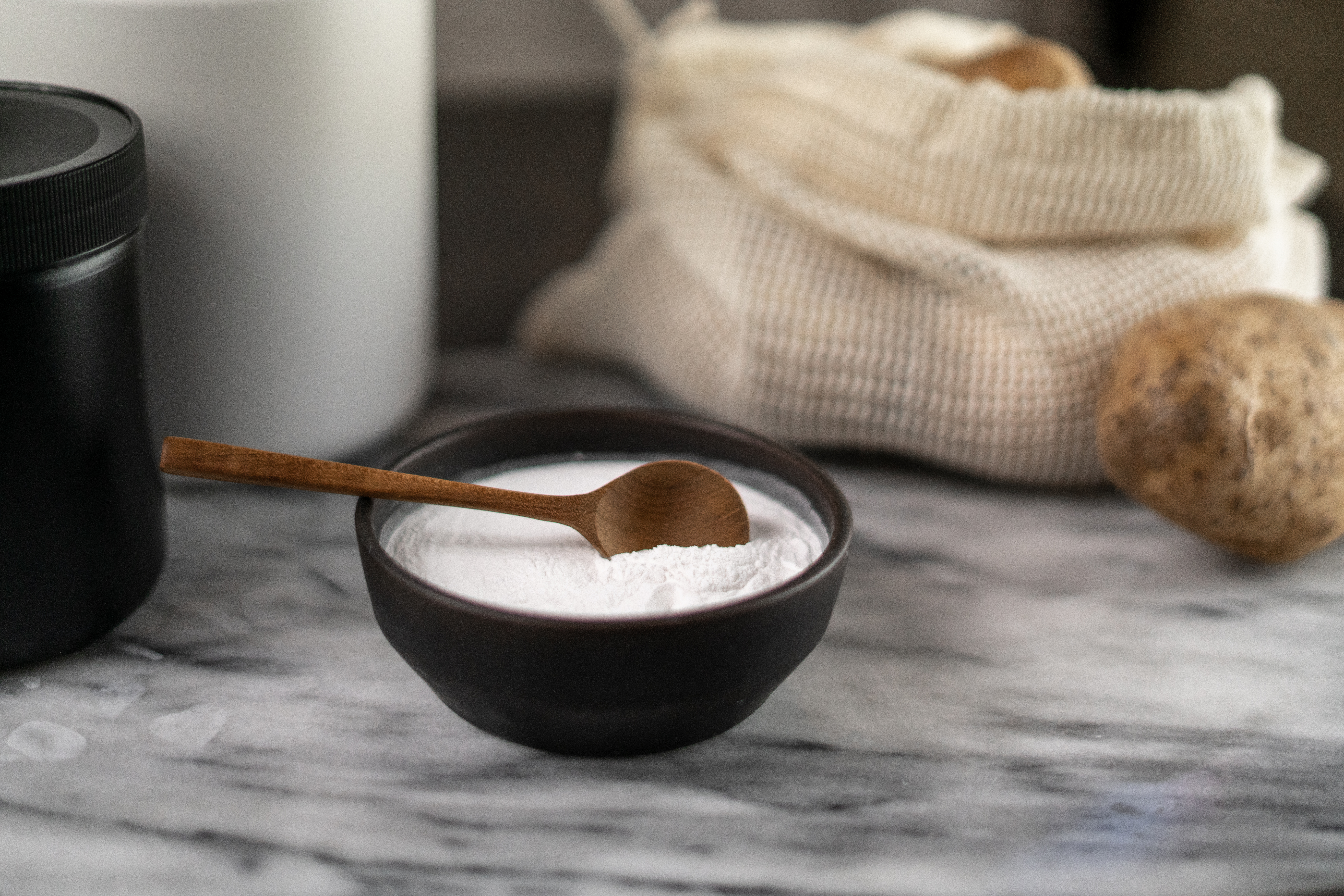A healthy and happy gut is imperative for your overall health – it contributes to a strong immune system, brain health, heart health, mood, sleep, and of course, your digestion.
You can improve your digestion naturally by slowly and mindfully chewing your food, drinking your daily water intake and eating nutrient-dense foods. These foods provide a sufficient number of vitamins, minerals, and fiber. Fiber is needed to keep the digestive tract moving and helps remove excess waste from the body. One way to consume more dietary fiber is with resistant starch. Resistant starch is a type of prebiotic which feeds the good bacteria in the gut.
What are prebiotics?
Prebiotics are a substrate that is selectively utilized by host microorganisms conferring a health benefit. The substrate ferments in the colon, which stimulates the growth of beneficial bacteria, including Bifidobacterium. The growth of these bacteria in your gut promotes a healthy balance of friendly bacteria, which helps the body fight against disease and conditions associated with the gut, including Irritable Bowel Syndrome (IBS). IBS is a gastrointestinal disorder that causes abdominal pain, diarrhoea, and constipation. Globally, 40% of people experience gastrointestinal conditions, including IBS. The intestinal levels of bifidobacteria in people who experience IBS are much lower. Some prebiotics, like resistant starch, can help stimulate the growth of Bifidobacterium to help manage IBS related symptoms.
Not all prebiotics, however, are low FODMAP and suitable for those with IBS. High FODMAP foods include garlic, onion, asparagus and artichokes. These soluble, rapidly fermenting sugars feed the microbiome and may cause discomfort and stress in those with FODMAP sensitivities and IBS. Reducing the dietary intake of FODMAPs has been demonstrated to reduce IBS related symptoms and improve the quality of life for affected individuals.
What is resistant starch?
Resistant starch is a soluble fiber and powerhouse prebiotic starch molecule found in starchy vegetables, fruits and grains. Some resistant starches are slowly fermented, which may mean less intestinal gas, bloating or pain symptoms than FODMAPs may trigger.
There is belief that the consumption of resistant starch from starchy roots was likely to have been a key innovation in the human diet dating back 170,000 years. Our ancestors may have consumed 30-50 grams of resistant starch per day. Today, modern diets are processed, heated, and modified, stripping resistant starch from our foods. Western countries, on average, get only 4 grams or 20% of Suggested Dietary Target (SDT) of resistant starch from diet alone. Resistant Starch is an important dietary fiber for optimal health. The Commonwealth Scientific and Industrial Research Organisation (CSIRO) concluded that low levels of resistant starch may contribute highly to diseases that have been associated with low fiber intake.
What is Solnul™ prebiotic resistant starch?
SolnulTM is a branded prebiotic resistant potato starch ingredient that can be spotted within dietary supplements and functional food and beverage products. SolnulTM delivers the highest concentration of Resistant Starch Type 2 (RS2). RS2 includes native granules from unmodified food sources like fruits, vegetables, and grains. However, raw potato starch granules are exceptionally rich in RS2. Derived from Non-GMO potatoes, SolnulTM resistant potato starch is the only supplement-grade source available on the market with over 60% RS2. It feeds the microbiome and is a slowly fermented prebiotic that helps reduce IBS related symptoms like gas, constipation and diarrhoea.
Why look for products fueled by Solnul™?
SolnulTM is a multi-functional prebiotic RS2 ingredient that differentiates itself from other competing prebiotics. Here are the reasons why:
#1 it’s clinically proven to:
- Support GI health*
- Significantly increase Bifidobacterium in the GI tract*
- Optimize microbial balance in the GI tract*
- Reduce IBS related symptoms (diarrhoea, constipation, gas) *
- Promote regularity and normal bowel movements*
*These statements have not been evaluated by the Food and Drug Administration. This product is not intended to diagnose, treat, cure, or prevent any disease
#2 It’s ancestral
Resistant starch has been a part of human diets for tens of thousands of years, making it one of the most widely consumed prebiotics in human history.
#3 It’s derived from a food source
It’s critical to get as many nutrients as you can from real food. SolnulTM prebiotic RS2 is a food source from unmodified potato starch.
#4 It’s the first low dose resistant starch with a prebiotic effect!
Clinically-proven at doses as low as 3.5 g, Solnul™ is the first low dose resistant starch, effective at 1/10 of the previously documented dosage.
#5 It’s a source of dietary fiber
Many regulatory bodies around the world recognize SolnulTM as a source of dietary fiber. While most prebiotics fall into either soluble or insoluble fiber categories, resistant starch is unique in that it may act like both; it arrives in the large intestines intact like insoluble fiber and is a slowly fermentable soluble fiber.
#6 It has a triple-action effect on IBS related symptoms
While other prebiotics can have a singular mechanism, Solnul™ has a triple-action effect on IBS related symptoms with a reduction in daily occurrences of gas, constipation and diarrhoea, promoting regularity.
#7 It’s FODMAP Friendly Certified
Low FODMAP diets can improve IBS-related symptoms. Contrary to many prebiotic fibers, Solnul™ is slow to ferment, well-tolerated and FODMAP Friendly Certified. It provides you confidence when you are eating and is suitable on the low FODMAP diet.
Many resistant starches have a prebiotic effect, but not all prebiotics contain resistant starch. Resistant starch is the real gold of dietary fiber and prebiotics. Be sure to look for SolnulTM Prebiotic (Resistant Potato Starch) in your food’s ingredient list.
Written by: Cara Kennedy, SolnulTM
Who is Solnul™ for?
US-based supplement and food manufacturers looking to formulate with a digestive health ingredient. Manufacturers may submit a request to jleibert@solnul.com
Where can people find out more about Solnul™?
You can find out more about Solnul™ on their website, LinkedIn and Facebook.










